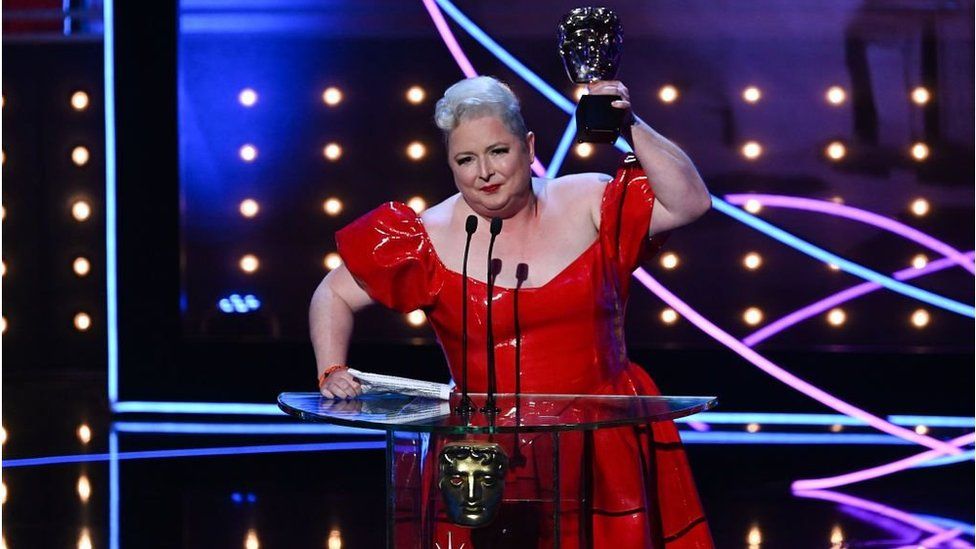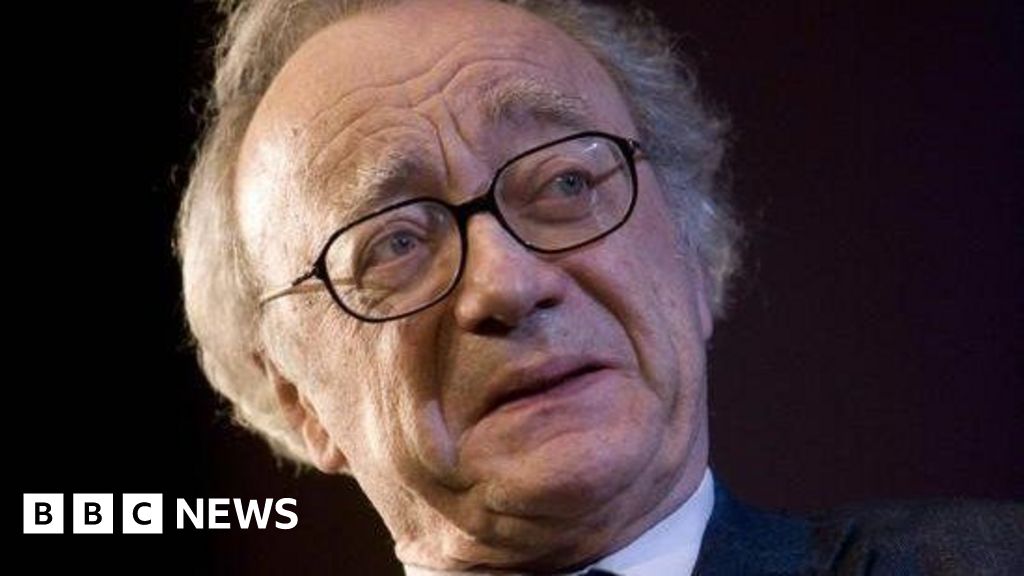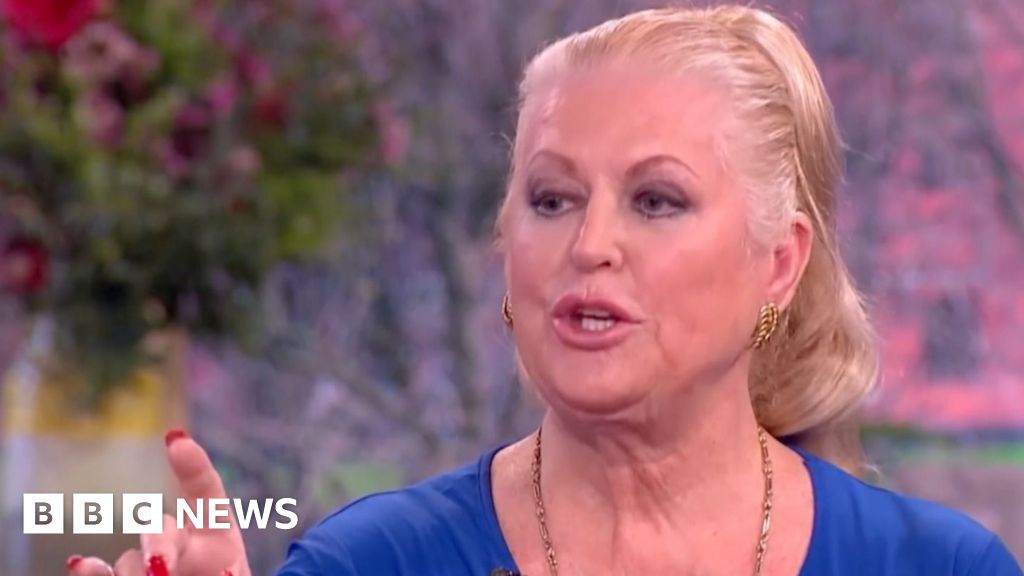ARTICLE AD BOX
 Image source, Getty Images
Image source, Getty Images
Siobhan McSweeney is best known for her role in Derry Girls
By Sophie van Brugen
Entertainment reporter
Why are fat characters so often the butt of the joke or the focus of pity? A new documentary raises questions about the lack of complex portrayals of plus-size people on screen.
Actress Siobhan McSweeney is best known as Derry Girls' imposing headmistress Sister Michael, a nun almost as large in stature as in character, and an imposing figure in both respects.
Two years ago, the actress starred in a very different role in ITV drama Holding. But the press were only interested in one thing.
"All they wanted to ask me about was the love scene and how brave I was doing it because of my body shape," she says.
Now McSweeney is lending her voice to a new documentary looking to give fat people a fairer and more balanced portrayal in media, as well as society in general.
Filmed over six years, Your Fat Friend follows author and podcaster Aubrey Gordon from her first brutally honest online post, written under the pseudonym that doubles as the documentary's title.
Describing her "fat experience", she recalled being kicked off planes, having doctors' appointments refused and the endless conversations and attempts at dieting. Gordon was a size 26 - the equivalent of 30 in the UK.
The documentary explores what happened after her post went viral. Viewers see her evolve and talk publicly about an issue that affects millions around the world.
During her journey into the public eye, Gordon amassed a huge following and became a New York Times best-selling author and host of the Maintenance Phase podcast. She looks unflinchingly at societal perceptions of fat people and the fat on our bodies.
At a preview screening of Your Fat Friend in Scotland attended by the BBC, it's freezing cold and wet and yet there's a huge queue of people snaking around the pavement waiting to go into the Glasgow Film Theatre. Their teeth chatter with cold and excitement.
"It's a sensitive subject and one that needed to be treated with absolute care," documentarian Jeanie Finlay tells BBC News. "I'm looking for stories that are unspoken, people who aren't in the spotlight with considered perspectives. I wanted people to see a realistic experience of what it means to live with a larger body.
Image source, Glimmer Films
Image caption,One critic said the film was an "engaging, eye-opening documentary"
"If you look at the way that LGBTQ+ stories have been told over the years, they have become much more nuanced on screen because people have a better understanding and have challenged the bias with which these stories have been told in the past. Why can't we do the same with body size?"
"Fat people can be heroes, not just the punchline," Finlay says.
This point was echoed by audiences in the Q&A of the screening, as many referred the lack of onscreen representation from plus-sized actors in film and television. The ones that do exist fall into the same tropes; the fat friend to the slim, attractive main character or the depressed lonely fat person who is either bullied, pitied or despised.
McSweeney is a long-time admirer of Gordon's work, so when she was asked to host one of the Q&A sessions, she jumped at the chance.
"Aubrey is a kind of talisman, the atmosphere was electric. It shows how important it is to explore the topic more deeply," McSweeney says.
Recounting her memories of those journalists asking about her love scene, she adds: "It's utterly wrong - they weren't trying to be insulting but I think it's something deeply ingrained that means we can't deal with the issue".
The actress is now well-respected and established in her career but when she started out, she was continuously told to lose weight.
Image source, Getty Images
Image caption,Your Fat Friend, which is directed by Jeanie Finley (L) and follows the journey of Aubrey Gordon (R), has been praised by critics
Casting director Shaheen Baig, whose credits include Lady Macbeth, Peaky Blinders and Black Mirror, says: "I hope we can get to a point with a character and script where it doesn't specify body size. I still think people have a limited lens when it comes to what characters can look like - there's still a lot of work to be done."
"As a casting director, things are improving, but it's very slow and nowhere near where it should be. People say it's an open playing field but it's not."
She adds: "Directors, producers, commissioners, and studios need to think about characters in less conventional ways and also to commission a wider variety of scripts."
Critics have referred to the film as an insightful view of fatness that is often neglected and rarely acknowledged by Hollywood.
Screen Daily's Nikki Baughan described it as an "engaging, eye-opening documentary," while the Guardian's Peter Bradshaw said Finlay "paints a warm and generous portrait of a sympathetic subject".
However, IndieWire's Christian Zilko said that although the film "succeeds in offering a nuanced portrayal of a writer and the views that made her beloved, it's hard to shake the feeling that the film actively infantilizes the very demographic that it wants to elevate".
"Gordon's points about mental health and unrealistic media expectations would be so much stronger if they weren't offset by her criticisms of healthy habits and resistance to solve a problem that is quite literally killing people," he wrote. "Even if she rightly identified a problem in the way American society treats fat people, the film's fatal flaw is its insistence on replacing one extreme with another."
Finlay's previous documentary credits include Game of Thrones: The Last Watch, Sound it Out and the BIFA-winning Seahorse.
Image source, Getty Images
Image caption,Da'Vine Joy Randolph is the frontrunner to win best supporting actress at the Oscars for her role in The Holdovers
Historically, the shorthand characterisation in literature and film has been to make evil, funny or silly characters fat or ugly.
"It's so lazy and reinforces the stereotypes," says Finlay. "The examples are endless: Miss Trunchbull, Shallow Hal, Thor in Avengers End Game, Mrs Scrubbit in Wonka.
"I wonder what the world would look like if the word fat wasn't associated with such negative characteristics, but we have the power to change that with our writing and film making choices."
Oscar nominated actress Da'Vine Joy Randolph is often quoted saying her big Hollywood break has taken longer because of her looks.
"People on screen don't traditionally look like me," Randolph said recently. "I've had to fight to play fully-realised characters with complexities."
The fact that she is the frontrunner for her category at the Oscars suggests there is progress taking place. But whilst there is some change, many feel it is too slow.
What started off as a passion project for Finlay has turned into a global talking point. Audiences say they have been moved by the film and it has reignited a desire to be authentic and truthful about the human body - and to see that properly fleshed out on the big and small screen.
Your Fat Friend is released in cinemas on 9 February.

 1 year ago
81
1 year ago
81








 English (US) ·
English (US) ·